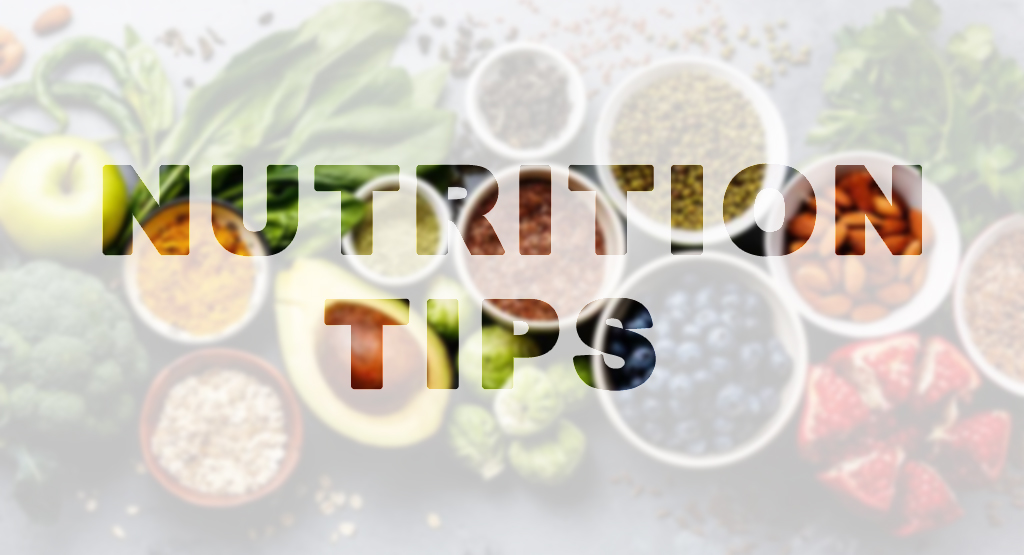Are you giving your body the premium fuel it deserves for peak performance? Whether you’re an avid fitness enthusiast or just starting your wellness journey, understanding the impact of nutrition on your energy levels and overall fitness is crucial. The question isn’t just about eating; it’s about eating right.
In the pursuit of achieving optimal fitness and sustained energy levels, the role of nutrition cannot be overstated. What you eat plays a crucial role in powering your workouts, enhancing recovery, and supporting overall well-being.
In this comprehensive guide, we’ll delve into the realm of nutrition, uncovering essential tips to not only fuel your workouts but to elevate your energy levels and support your body’s needs for a healthier, more vibrant you. Let’s explore the science behind the plate and discover how the right nutrients can be your secret weapon in achieving optimal fitness and sustained vitality.
Ten valuable nutrition tips to help you unlock your full potential in the realm of fitness and energy.
Understand Your Macronutrients
Begin by comprehending the importance of macronutrients—carbohydrates, proteins, and fats. Each plays a unique role in providing energy, repairing muscles, and supporting various bodily functions. Striking the right balance is key to maintaining optimal performance.
Prioritize Complex Carbohydrates
Opt for complex carbohydrates such as whole grains, fruits, and vegetables. These provide a steady release of energy, helping you sustain prolonged workouts without the energy crashes associated with simple sugars.
Include Lean Proteins
Proteins are vital for muscle repair and growth. Incorporate lean protein sources like chicken, fish, tofu, and legumes into your meals. Adequate protein intake is especially important after workouts to support recovery.
Healthy Fats for Sustained Energy
Include sources of healthy fats in your diet, such as avocados, nuts, and olive oil. These fats provide a lasting source of energy and contribute to overall health.
Stay Hydrated
Proper hydration is fundamental for optimal performance. Water is involved in various physiological processes, and dehydration can lead to fatigue and decreased exercise capacity. Consume an adequate amount of water throughout the day, and consider electrolyte-rich drinks for intense workouts.
Time Your Meals
Plan your meals around your workout schedule. Consuming a balanced meal or snack 2-3 hours before exercising ensures your body has the necessary fuel. Additionally, post-workout nutrition is crucial for replenishing glycogen stores and aiding muscle recovery.
Supplement Wisely
While whole foods should be the foundation of your diet, supplements can provide added support. Consider supplements like whey protein, omega-3 fatty acids, and vitamins, but always consult with a healthcare professional before adding new supplements to your routine.
Listen to Your Body
Pay attention to hunger and fullness cues. Eating mindfully helps prevent overeating and ensures you fuel your body appropriately based on its needs.
Experiment with Timing and Portion Sizes
Everyone is unique, and what works for one person may not work for another. Experiment with meal timing and portion sizes to find the approach that best supports your energy levels and fitness goals.
Stay Informed and Adapt
Nutrition science is continually evolving. Stay informed about the latest research and adjust your dietary choices accordingly. A flexible and informed approach to nutrition ensures that you are always optimizing your fitness journey.
Conclusion
In the dynamic pursuit of wellness and peak performance, the significance of nutrition emerges as a cornerstone, shaping the trajectory of your fitness journey. As we wrap up this exploration into the intricacies of optimal nutrition for energy and peak performance, remember that the path to vitality involves more than just the physical exertion of a workout—it’s a holistic approach that encompasses mindful choices on your plate. By incorporating the discussed nutrition tips into your daily routine, you’re not merely adopting a diet; you’re embracing a lifestyle that harmonizes with your body’s unique needs. As you embark on this journey, allow flexibility in your approach, and remember that progress is a continuous, adaptive process.

